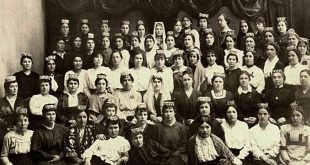Abū al-Ḥasan Sha’rānī (b. 1320/1902 – d. 1393/1973) was a Shiite scholar and philosopher in the fourteenth/twentieth century, knew French and English, and was an expert in Quranic studies, hadith, fiqh, usul al-fiqh, kalam (Islamic theology), Islamic philosophy, geometry, and astronomy.
Thus he wrote many works in these areas. His teachers include Shaykh ‘Abd al-Karim Ha’iri Yazdi, Mirza Mahdi Ashtiyani and Mirza Mahmud Qumi, and his students include Mirza Hashim Amuli, Hasan Hasanzada Amuli, and ‘Abd Allah Jawadi Amuli. He wrote commentaries and annotations on important books of the Quranic exegesis, hadith, theology and Islamic philosophy. His books include Falsafi ula, which concerns the views of western philosophers about metaphysics and the immateriality of the soul, and Rah-i sa’adat, which is an argument for prophecy and in particular, the prophecy of the Prophet Muhammad (s).
Born
Mirza Abu al-Hasan Shaʻrani, the son of Sheikh Muhammad Shaʻrani, was born in a religious family, in 1320/1902 in Tehran.
His Education
Shaʻrani was born in 1320/1902 in Tehran and his father was a clergy. He learned the Qur’an from his father, Shaykh Muhammad Tihrani, and started his Islamic educations in the Marwi Seminary where he studied Arabic literature, Persian literature, logic, fiqh, usul al-fiqh, Islamic philosophy and mathematics. He then went to the Qom Seminary, which had recently been founded, and attended advanced lectures of fiqh and usul al-fiqh in Qom. His father died when Abu l-Hasan was 26. After this, he migrated to Iraq where he studied Shiite as well as Sunni fiqh. When he finished his education and after studying and practice of mysticism, he returned to Tehran in the era of Rida Shah Pahlawi where he started teaching, research, and preaching.
His Teachers
- Mirza Mahdi Ashtiyani
- Mirza Mahmoud Qumi
- Habib Allah Dhu al-Funun
- Shaykh ‘Abd al-Karim Ha’iri Yazdi
- Shaykh ‘Abd al-Nabi Nouri
- Sayyid Abu Turab Khwansari
His Knowledge of other languages
In addition to expertise in different Islamic disciplines, Abu al-Hasan Shaʻrani knew some languages, including Persian, Arabic, French, Turkish, English, and Hebrew.
His Students
Shaʻrani taught many students during his life. Here are some of his prominent students:
- Mirza Hashim Amuli
- ‘Abd Allah Jawadi Amuli
- Hassan Hasanzada Amuli
- Muhammad Hassan Ahmad Faqih Yazdi
- Ali Akbar Ghaffari
- Muhaddith Urmuwi
- Sayyid Ahmad Khwansari
His Works
Shaʻrani wrote many works in different areas of Islamic disciplines and human sciences, from fiqh and usul al-fiqh to Islamic philosophy, kalam, the Qur’an, and hadith. Here is a list of some of his important work.
Fiqh and Usul al-Fiqh
- Al-Madkhal ila ‘adhb al-manhal concerning usul al-fiqh
- A commentary on Kifayat al-usul
- A commentary on ‘Allama Hilli’s Tabsira
- A commentary on Qawa’id al-usul
- A commentary on al-‘Urwat al-wuthqa’s discussion of doubts during prayers
- A brief introduction to fiqh in Farsi (as a material to teach in schools)
- Manasik hajj (hajj rituals) with annotations of 9 Shiite authorities (maraji’)
Quranic Exegesis and Sciences
- Annotations on Majma’ al-bayan (in ten volumes)
- Editing Tafsir al-safi (two volumes)
- Annotations on Tafsir manhaj al-sadiqin (ten volumes)
- An introduction and annotations on Tafsir Abu l-Futuh al-Razi (twelve volumes)
- Nathr tuba, an encyclopedia of Quranic terms (from the letter, “alif” to the letter, “sad”)
- Tajwid al-Quran
- Publication of more than 60 copies of the Quran in different sizes
Hadith
- Annotations on al-Wafi (three volumes)
- Annotations on Mulla Salih Mazandarani’s commentary on Usul al-kafi (twelve volumes)
- Annotations on Wasa’il al-Shi’a (volumes 16 through 20)
- Annotations on Daylami’s Irshad al-qulub
- A translation of, and a commentary of, Supplication of ‘Arafa by Imam al-Husayn (a) in Farsi
- A translation of, and a commentary on, al-Sahifa al-Sajjadiyya in Farsi
- Editing Jami’ al-ruwat
- An essay concerning dirayat al-hadith
Islamic Philosophy and Theology (kalam)
- A commentary on Tajrid al-i’tiqad
- Annotations on al-Muhaddith al-Nuri’s Fasl al-khitab
- Rah-i sa’adat (an argument for prophecy and a reply to objections by Jews and Christians concerning the prophecy of Muhammad b. ‘Abd Allah (s)
- A translation of the book, al-Imam ‘Ali sawt al-‘adala al-insaniyya into Farsi. The book was written by George Jordac. Shaʻrani has annotated some of his objections in the translation.
- Annotations on the book, Muhammad: prophet and statesman, by Montgomery Watt
- Philosophical terminologies
- An introduction and annotations on Mulla Hadi Sabziwari’s Asrar al-hikam
- Falsafa-yi ula ya ma ba’d al-tabi’a (First philosophy or metaphysics) in Farsi
Astronomy
- An essay on how to work with zij[Note 1] in accordance with new astronomy
- Annotations on Tashrih al-afka in terms of new astronomy
- A translation on Flammarion’s book about stronomy from French to Perisan
- Day and night calendars
History
- A translation of Shaykh ‘Abbas Qumi’s Nafas al-mahmum
- An introduction and an editing of Kashf al-ghumma
- An introduction and an editing of Muntakhab al-tawarikh
- An introduction to Waqa’i’ al-sinin by Khatun Abadi
- An introduction and editing of, and annotations on, Mulla Husayn Kashifi’s book, Rawdat al-shuhada’
Misc.
- An introduction and editing of, and annotations on, volumes 1 and 3 of Nafa’is al-funun fi ‘arabis al-‘uyun by Shams al-Din Mahmud Amuli.
Demise
Late in his life, Shaʻrani was taken to Germany in order to receive treatment, but it doesn’t work, and he passed away on Saturday, 7 of Shawwal, 1393/November 3, 1973. His body was taken back to Iran and buried in the holy shrine of ‘Abd al-‘Azim al-Hasani.
 Ijtihad Network Being Wise and Faithful Muslim in the Contemporary World
Ijtihad Network Being Wise and Faithful Muslim in the Contemporary World
